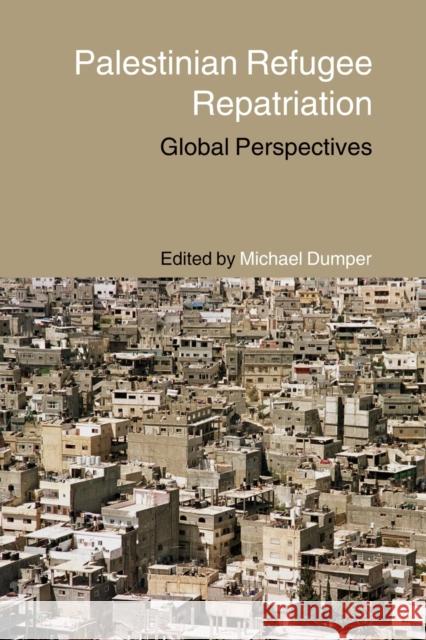Palestinian Refugee Repatriation: Global Perspectives » książka
Palestinian Refugee Repatriation: Global Perspectives
ISBN-13: 9780415385503 / Angielski / Miękka / 2006 / 338 str.
Palestinian Refugee Repatriation: Global Perspectives
ISBN-13: 9780415385503 / Angielski / Miękka / 2006 / 338 str.
(netto: 148,31 VAT: 5%)
Najniższa cena z 30 dni: 145,09
ok. 16-18 dni roboczych.
Darmowa dostawa!
The repatriation of Palestinians is a highly topical issue, and a critical component of any future peace process for Israel / Palestine. Until now, the mechanics of repatriation has not been dealt with before in this detail. This book explores the notion that the Palestinian refugee case is exceptional. It does this through the comparative study of refugee repatriation, and by asking the following questions:
* To what extent can the Palestinian case said to be unique?
* Where are the divergences, the overlaps and points of similarity with other refugee situations?
* What lessons can be drawn from these comparisons?
* How can these lessons inform refugee organizations, the donor community and policy makers?
In attempting to answer these questions, the expert contributors cover three main fields. Firstly: the contextual and methodological field, reviewing on one hand the main trends in forced migration and refugee studies and issues concerning policy transfer and comparative research; and on the other hand, the historical and political background of UNHCR and the negotiations around the Palestinian refugee issue. Secondly: the book offers a truly comparative approach with other case studies from around the world. It covers in-depth case studies of specific refugee situations - covering Cambodia, Guatemala, the Horn of Africa, Iraq, Afghanistan, Bosnia and Herzegovina - to reveal the key issues in the formulation of repatriation programs. Finally, the book draws together the lessons learnt, and considers to what extent these lessons are relevant to the Palestinian-Israeli situation.











